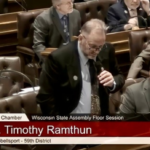
Overview
Vaccine acceptance and uptake are essential to protect the health of Canadians. It is important that as many Canadians as possible get vaccinated against COVID-19 to help keep themselves and their communities healthy, and protect our health care systems. Through the Immunization Partnership Fund (IPF), the Government of Canada is helping close the gap among populations with lower vaccine uptake by enabling informed vaccination choices. Initiatives supported by the IPF are evidence- and equity-based and deployed in communities across Canada. In 2020 and 2021, the IPF received $45.5 million in additional funding over 2.5 years to allow the Public Health Agency of Canada to continue supporting vaccination efforts across Canada, while identifying new initiatives to increase vaccine confidence, uptake, and access to COVID-19 vaccines. This funding is helping Canadians make informed COVID-19 vaccination decisions, as well as helping them to catch up on routine vaccines that may have been missed during the pandemic. This funding is designed to protect Canadians from COVID-19 and other vaccine preventable diseases by supporting our health partners in three priority areas:- Build capacity of health care providers as vaccinators and vaccination promoters by:
- developing tools, training, and evidence-based information for health care providers to counsel individuals on the importance of COVID-19 vaccines and other vaccines
- Support community-based COVID-19 education, promotion, and outreach by:
- addressing gaps in knowledge, attitudes and beliefs of Canadians, with a particular emphasis on underserved or marginalized populations, related to vaccination
- developing tailored and evidence-based information to increase vaccine confidence and acceptance, with a particular focus on COVID-19 vaccines, including information as to where to access the vaccine(s)
- supporting mechanisms and initiatives that reduce and remove barriers to vaccination, and provide access to vaccination
- providing community-based solutions to prevent the spread of misinformation and disinformation circulating online about COVID-19 and the COVID-19 vaccines
- Build capacity for evidence-based vaccination communication by:
- supporting organizations to develop communications strategies and public engagement strategies to foster evidence-based dialogue around vaccines.
About the Immunization Partnership Fund
The World Health Organization (WHO) estimates that millions of deaths are prevented worldwide every year due to vaccination and considers vaccine hesitancy one of the top 10 health threats globally. Vaccination has wiped out smallpox completely and has successfully and dramatically lowered the rates of many other diseases in countries with strong vaccination programs. Some diseases, like polio, have been eliminated from Canada and the rest of the Americas because of vaccines. Today, not enough Canadians are vaccinated against vaccine preventable diseases. As a result, Canadians are still at risk for needless illness and death from infectious diseases that could be prevented through vaccination. Recognizing this public health challenge, the Government of Canada committed $25 million in Budget 2016 to increase vaccination coverage in Canada through the creation of the Immunization Partnership Fund, with an initial focus on supporting childhood and routine immunizations. Budget 2016 earmarked 3 to 5 million dollars per year for 5 years (2016-2021). In response to Canada’s COVID-19 vaccination efforts, the Government of Canada committed an additional $45.5 million (2020 to 2023) to continue to support community-based efforts to increase COVID-19 vaccine acceptance and uptake among Canadians, address vaccine misinformation and disinformation, and reduce vaccine preventable disease.| Alberta | Alberta International Medical Graduates Association | Improving COVID-19 Vaccine Literacy and Acceptancy among Newcomers | This project will offer tailored interventions to increase vaccine literacy and improve access to the COVID-19 vaccine among newcomers to Canada. Interventions will include practical aids such as booking vaccine appointments, providing appointment reminders, and providing transportation to and from vaccine appointments. The project will also create multilingual educational supports to ensure newcomers to Canada have up-to-date information on vaccines and can ask questions in their preferred language. | Newcomers to Canada | $500,000 |
| Alberta | Alberta Addicts who Educate and Advocate Responsibly (AAWEAR) | Peer Capacity Building Project for Vaccination Education and Promotion | Through community collaboration, virtual information sessions, and peer support certification, AAWEAR will mobilize peer support workers as community-based peer navigators across Alberta to further support in-risk, culturally diverse, vulnerable populations who use drugs to be able to better access services and attend vaccine appointments. | People who use drugs and marginalized populations in Alberta | $374,998 |
| Alberta | Telus Spark Science Centre | Online Education and Hip-Hop Entertainment | This program is a collaborative effort to create unique public service announcements featuring Indigenous and racialized young adult talent, with the goal of promoting the importance of vaccines and providing influence to build confidence in vaccination science. | Indigenous youth, communities and leaders | $393,000 |
| Alberta | Centre de bien-être et de prévention pour afro-canadiens de l’Alberta (CBEP) | The African-Canadian community and the mystery of vaccination | This project aims to implement culturally appropriate strategies to increase knowledge in order to demystify negative beliefs, combat misinformation, and restore confidence and acceptance of the COVID-19 vaccine. | People of African Descent in Alberta | $400,000 |
| Alberta and Ontario | University of Calgary | Training Program for Optimized Vaccine Communication: Empowering our Future Health Care Workers with Vaccination Confidence and Competence | This project will develop and implement an educational, virtual simulation game-based program for health care (nursing, medicine and pharmacy) provider trainees to build capacity, competence, and confidence for in-trainees’ knowledge, attitudes, and skills around vaccination communication and uptake. | Medicine, nursing and pharmacy health care provider trainees | $428,000 |
| Avalon and Burin Regions, Newfoundland and Labrador | YMCA of Newfoundland and Labrador | Y-Take the Shot | Through this program designed for traditionally underserved or marginalized populations, YMCA of Newfoundland and Labrador will endeavour to improve knowledge about the importance of vaccination, build confidence in vaccines through education and outreach, and will actively address barriers to accessing vaccination services such as, but not limited to, translation, transportation and childcare. | Single parents, newcomers and individuals living in rural Newfoundland | $328,500 |
| British Columbia | African Arts & Culture Community Contributor Society | Increasing Confidence in the COVID-19 Vaccine in British Columbia’s Black Community | This project will work to empower Black community leaders in British Columbia to be COVID-19 vaccine promoters, establish a coalition of Black-led vaccination clinics, and develop vaccination promotion and management tools that are culturally responsive. | Black communities in British Columbia | $450,000 |
| British Columbia | British Columbia Association of Community Health Centres (BCACHC) | Community Vaccination Promotion – British Columbia Project (CVP BC) | This project is increasing uptake of the COVID-19 vaccine among vulnerable populations across British Columbia by developing and sharing evidence-based and culturally relevant vaccination promotion resources, identifying and assessing the unique needs of vulnerable populations across British Columbia, and implementing tailored strategies to ensure vaccination promotion efforts meet these needs. | Vulnerable populations across British Columbia, Community health providers and workers | $323,871 |
| British Columbia | SafeCare BC | Increasing Vaccine Education and Encouraging Vaccine Acceptance and Advocacy in BC’s Continuing Care Workforce | This project aims to educate and empower British Columbia’s continuing care workers to be ambassadors for vaccination in their workplaces and communities through evidence-based, tailored messaging around the importance of vaccination as a safety measure in continuing care. This project also offers training and resources to build the capability of staff at all levels to become trusted sources of information on vaccines. | Continuing care workers | $250,000 |
| British Columbia | RésoSanté Colombie-Britannique | Draw me a Picture | A community-based initiative that uses a participatory approach, peer educators, and adapted communications (customized visual content) to effectively communicate information about COVID-19 and the safety, efficacy, and benefits of vaccination. | Francophones in British Columbia | $340,000 |
This project, led by the Canadian Paediatric Society (CPS), has developed a workshop and an online education module on vaccine hesitancy. These courses provide health care providers with a better understanding of the common causes of vaccine hesitancy and the most effective ways to counsel their patients and families to make informed decisions. Additionally, CPS has reinstated the online version of its Education Program for Immunization Competencies (EPIC), designed to help health care professionals provide accurate and complete information to their patients about immunization. In response to COVID-19, this project included training specific to COVID-19 and integrated the COVID-19 context into existing modules.
CANImmunize Inc. has developed a smartphone and web-based immunization tracking application for Canadians. It offers appointment reminders, information about vaccines, local outbreak notifications and other information specific to each province or territory.
Funding amount: $3,812,397
This project, led by the Prince Edward Island Department of Health and Wellness, has implemented a multi-faceted, province-wide initiative to increase adult vaccination rates by working with health care providers to increase their ability to identify under and unvaccinated individuals through the development and use of an Immunization Assessment Tool. As well, this project enhanced health care providers’ ability to communicate more effectively with their patients about vaccination.
Funding amount: $376,521
Data consistently shows that infant vaccination rates decline between 12 to 18 months, and there are a number of reasons for this including the need for parents or caregivers to take time off work, forgetting about appointments, as well as vaccine hesitancy. Recognizing these challenges and to promote vaccination coverage among this age group, the Alberta Ministry of Health pilot tested a text message reminder/recall strategy at the time of a child’s intended 18-month vaccination appointment.
Funding amount: $320,055
This project, led by Manitoba Health, Seniors and Active Living, developed maps that identified where there are populations of Manitobans who are not vaccinated or whose vaccinations are not up-to-date. The project also identified the potential causes of low vaccine uptake in order to tailor local strategies aimed at increasing vaccination coverage rates.
Funding amount: $595,784
In collaboration with provincial partners, the Centre Intégré Universitaire de Santé et Services de l’Estrie – Centre hospitalier universitaire de Sherbrooke implemented this project to increase infant vaccination coverage rates in Quebec. To do this, health care providers from the 13 largest maternity wards in Quebec received training in motivational interviewing techniques specific to infant vaccination. Motivational interviewing allows health care providers to better address the concerns of parents who are reluctant to vaccinate their children and to support them in their decision-making process regarding infant vaccination.
Funding amount: $520,000
This project, led by the British Columbia Interior Health Authority, has implemented an electronic immunization reminder/recall system to automate reminder calls for booked immunization appointments across all 39 health centres in the Interior Health Authority.
Funding amount: $195,814
This project, led by the Society of Obstetricians and Gynaecologists (SOGC), has gathered information through surveys and focus groups to better understand the knowledge, attitudes and practices of both health care providers and women of reproductive age related to vaccination during pregnancy. This knowledge was used to inform the development of tools, resources and educational programs for clinicians, allied healthcare providers and women. These materials were updated to incorporate elements related to COVID-19 as a means to address increased vaccination anxiety or hesitancy due to the pandemic.
Funding amount: $1,052,726
An adaptation of a school-based vaccination intervention called The CARD™ System (C-Comfort, A-Ask, R-Relax, D-Distract), University of Toronto researchers evaluated its effectiveness when implemented in the school vaccination program in Wellington-Dufferin-Guelph (WDG) Public Health using a randomized controlled trial design.
Funding amount: $48,782
The Canadian Association of Midwives (CAM) undertook this project with the goals of: understanding the challenges faced by midwives regarding the availability of information about vaccines and how this knowledge is shared with their clients; increasing midwives’ knowledge and competencies around vaccines; and making appropriate vaccine-related materials accessible to midwifery clients. This project also considered the unique needs and capacities of Indigenous midwives and Indigenous clients. Building on early results, CAM developed and disseminated an online training module to position midwives as vaccination promoters, with a particular focus on COVID-19 vaccines.
Funding amount: $399,644
Led by the Nova Scotia Health Authority, this project has assessed the immunization coverage rates of seven-year-old children through a parent survey. The results has helped to identify barriers to immunization that some Nova Scotian parents and guardians are experiencing and verify the immunization coverage rates for this age group. The survey results also informed the development of targeted interventions, focusing on the communities that emerge as disadvantaged when it comes to staying up to date with immunizations, ultimately, improving coverage rates in Nova Scotia’s children.
The C.D. Howe Institute conducted two detailed province-by-province assessments of Canadian vaccination policies and best vaccination practices, reviewed federal government policies and practices, and produced detailed recommendations for governments on how to improve vaccination policy in Canada for both children and adults.
Funding amount: $197,950



